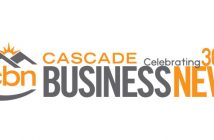
If you broke even the first year you started your company, you were lucky. If you had that glorious positive cash flow in the second year you were more than lucky, you’d found a business concept that appeared to be working. If you were still in business after two years, you reached the first big milestone.
Businesses that make it past the hurdles of the first few years have a greater chance of long-term success. Less than 50 percent make it to five years and only 35 percent to ten. The top reasons for failure include lack of experience, lack of capital, poor location, poor inventory management, over investment in fixed assets, bad credit arrangements, personal use of business funds, unexpected growth, competition and low sales.
If you’ve lasted five years (especially during a booming economy) you were likely taking vacations and buying new cars. Then the recent recession hit and most likely you stopped buying anything, you’ve been working twice as hard with fewer employees and less revenue. But you survived the last few years and it’s time to celebrate.
During the course of 2012 we presented several stories we called RESET – companies that were surviving a challenging economy by reinventing themselves.
Steve Curley, economic gardening business advisor for the Small Business Development Center at COCC and founder of Blue Space Markets, helped us over the year to sort through the RESET stories identifying the components that helped these companies achieve growth and success.
Some of the companies profiled included Schmid Malone that entered the legal services market by providing a high-level of service at a lower cost and making them more accessible, Absolute Hardwood Floors who focused on better and more efficient techniques to improve their product, giving them even more distance from the competition and White Knuckle Studios who purchased new equipment only as revenues allowed with all profits being reinvested in the company. They also sought out new markets where there was a demand for their services, not waiting for the business to come to them.
One of the first things to go, as they say, is the marketing budget when money is in short supply. Intrepid Marketing restarted as a new company to help other businesses do more with less through using an integrated approach to marketing. Intrepid has used an educational approach with workshops and training for local businesses to get their message out and reach their target market.
Strategic Realty set out from the beginning to create processes and systems that would allow them to compete at a higher level in a more efficient manner. Giant Loop experienced their RESET by going through leadership changes to get to the point where they had the right people in place to take the company forward. Now they are focusing on building the company with a product line that is gaining traction around the world. Building and maintaining trust with customers in a smaller community is a must for a business that sells higher ticket luxury items with emotional value. Douglas Fine Jewelry Design has exemplified this philosophy over a 22-year period, which has allowed them to stay strong through the economic downturn.
Sleepy D’z Mattress Warehouse literally started out of a garage, filling a need that was created due to other mattress stores going out of business. They focus on memory foam mattresses, differentiating them from other competitors and positioning them as experts in a fast growing segment.
ProCFO understands that the financial operations of a business is a fundamental key to managing and growing it and has built their services not only on traditional tax work, but also on providing services a business needs to decipher their cash flow and create a financial plan. Their RESET came even before the recession, understanding that diversity of services makes a business stronger and this has carried them through the lean times.
Automotive Paint Specialties offered an innovative water-based paint product to gain new customers, while a shifting market caused them to lose others. While Round Butte Seed learned how to be successful by offering diverse products that appeal to a broad audience. It was the staples of their business that carried them through when the higher priced novelty items didn’t sell at all.
Murray & Holt Motors took a double hit both by losing their main supplier of new vehicles as well as decreasing demand from a dramatic market shift, but they shifted their emphasis from a product delivery model to a service delivery model. When they lost their GM franchise, they saw an opportunity to reduce overhead from new product sales and focus on increasing vehicle service and repair while offering more unique used vehicles.
New Era Homes was able to survive and RESET quickly because Todd McKinney understood the importance of cash flow and debt management. Now, they are in a position to take advantage of the turning market and focus on serving their customers, another key to a successful business.
A changing market cannot only take away customers, but also bring new ones. Such has been the case for Alliance Storage. Steve Welbourn found that with the high number of foreclosures, he was able to provide a service to families who needed a place for storage with respect and a friendly atmosphere.
Clearwater Gallery owners Dan and Julia Rickards have accomplished a feat most would fear to ever attempt… moving, expanding and reinventing themselves. They opened an all new Clearwater Gallery and The Open Door wine bar in Sisters, a hybrid venture pairing their love of fine art and gathering with friends and clients.
During Central Oregon’s construction crash both Hickman Williams & Associates and Pahlisch Homes reported that they looked for opportunities outside of Central Oregon. Dennis Pahlisch noted they very nearly did not survive but got very creative with private financing and joint ventures with investors while diversifying out of Central Oregon back to the Portland/Valley area and Washington.
David Williams, founder of HWA, might have the most recession-proof advice: “My philosophy is you have to laugh a bit everyday and have some fun; if you are not enjoying what you do, you should find something else.” Williams started the company twenty-five years ago and credits their survival targeting other market segments in the public sector and leveraging a positive work environment.
As we enter a new year we believe our economy has moved beyond resetting itself and that we’re ready for new innovations, more profits and celebrating our successes.
While Cascade Business News doesn’t turn twenty until 2014 we are publishing our 20th issue of CBN this fall. When we realized this we thought of all the companies in Central Oregon who have made it two decades and wondered how they did it and where they go from here. So during the course of 2013 (and beyond) we will be giving you feature stories on these companies and what’s behind their success. If you’re one of them or know of one please let me know: pamela@cascadebusnews.com. pha
Some of Steve Curley’s sage advice over the past year:
- Economic downturns create opportunities for new players in established markets that have fallout from businesses that can’t survive because of too much overhead or debt. New businesses can start up with low overhead to provide services at a lower price point.
- Keeping an adequate cash flow and managing debt are keys to a successful business. It’s not only important when things are going well, but can mean the difference between success and failure during lean times.
- Changing markets can also bring new competitors offering lower cost services without the expertise to deliver.
- The lean start-up has become the norm for businesses getting started in a challenging economy.
- Having the right people on board is an important element for a successful business. As businesses grow and transform from start-ups into fully functioning companies, they need to make sure that the right mix of people are in the right places.
- Having truly unique products that drive demand and providing quality customer education are two powerful elements of a successful business. Products and services are at the heart of any business. If you don’t have the right mix, you won’t have growing revenues.
- Being able to adjust your product offerings to meet your customers’ needs is a key part of a successful business.




